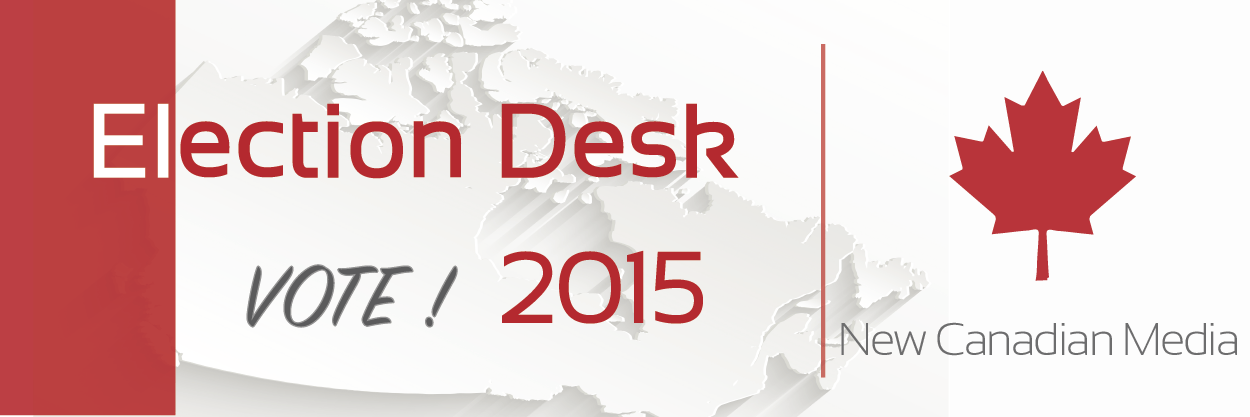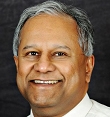 Ayesha Syed didn’t vote in the 2011 election.
Ayesha Syed didn’t vote in the 2011 election.
It wasn’t because she took her civic duty of voting for granted or isn’t interested in politics per se. Rather, it was because the 24-year-old Carleton University student didn’t see anyone reflective of her in the running.
“I don’t believe the current voting system represents democracy,” says Syed, who was born in Toronto to Pakistani parents, but now resides in Ottawa for school. “There is little to no representation of the candidates that I would vote for – such as multicultural and diverse women and minorities – anything, but the de facto white Caucasian male.”
In 2011, just 41 per cent of eligible voters under 30 cast a ballot.
Syed is part of the youth demographic – often referred to as the millennials, which are people born between 1980 and the early 2000s – which, according to a recently released report by Samara’s Democracy 360, vote at a much lower rate than older Canadians. In 2011, just 41 per cent of eligible voters under 30 cast a ballot.
Interestingly, the Samara’s Democracy study shows that young people do care about civic engagement and political life (beyond voting) – their participation is actually 11 percentage points higher, on average, than older populations.
So why aren’t they reaching the polls? The study says it’s in part due to political leaders failing to make contact with younger Canadians.
This also speaks to findings released by Queen’s University researcher Heather Bastedo in 2014, which indicated, “unless politicians (and the media) tune in to those things that interest youth, that demographic will not engage politically.”
Not just an age thing
In 2012, Elections Canada held a national roundtable on youth voter engagement co-chaired by Chief Electoral Officer Marc Mayrand and Public Policy Forum President and CEO, David Mitchell.
In the opening remarks, the co-chairs spoke to the complexities of the declining youth voter turnout and emphasized that ‘youth’ are not a homogenous group.
“We hear terms like getting the ‘ethnic vote’, politicians visiting mosques during election time, but rarely is this more than a PR stunt.”
Of the various sub-groups of youth the four deemed hard-to-reach were unemployed youth, aboriginals, rural youth and newcomers to Canada.
For first and second generation Canadians like Syed, part of what she’s looking for from politicians is genuine interest in issues that are important to her ethnic community, and other diverse ethnic groups in general.
“We hear terms like getting the ‘ethnic vote’, politicians visiting mosques during election time, but rarely is this more than a PR stunt,” she says. “No long term changes are made to help these very communities to use to their advantage.”
Newcomer youth being a cause for concern at the national roundtable is in line with the overall trend for more recent immigrant voters – Statistics Canada reported that just 51 per cent of recent immigrants voted in 2011.
Changing times
While many millennials, new citizens, and those who belong to both groups, may not have participated in the federal elections four years ago, October 19, 2015 may result in a different story.
A new report from the Institute for Canadian Citizenship titled Ballots & Belonging shows that of 2,300 new citizens surveyed, 88 per cent said that they believed voting was an effective way to create change.
“My lack of voting could lead to another term of someone I oppose running our country.”
And as for the millennials, all three federal political parties have strategically tried to garner support from a younger crowd primarily using things like social media. Not only that, but the major parties have fielded more women and visible minority candidates than ever before.
These noticeable efforts may be working and mean a voter turn out that’s more reflective of Canada’s diversity.
Twenty-seven-year-old Zenub Rauf, who once felt her vote wasn’t important, will be voting for the first time this year.
“I just felt like my choice wasn’t going to make or break the election. I think a big chunk of people my age and younger feel that way too,” says Rauf, who was born in Edmonton to Pakistani-born parents and now works for Scotiabank in Ottawa. “I need to vote, so despite the outcome I know I tried to fight. My lack of voting could lead to another term of someone I oppose running our country.”
Emad Mahdavi Ardekani, 26, agrees. “The only society where it doesn’t matter to vote is an anarchy,” says Ardekani, a University of Ottawa immigration law-articling student, who settled in Canada from Iran in 1997.
“We live in a society where our laws, everything we do, is based on policy. Policy is created by our politicians, by our elected members of parliament, by our government. For young and marginalized people, these policies affect us more than anyone else. It does make a difference whether it’s the Conservatives, the NDP or the Liberals.”
With additional reporting by Ranjit Bhaskar
Ranjit is a Toronto-based writer with interest in Canadian civic affairs, immigration, the environment and motoring. Maytree and Al Jazzera English alumnus.





